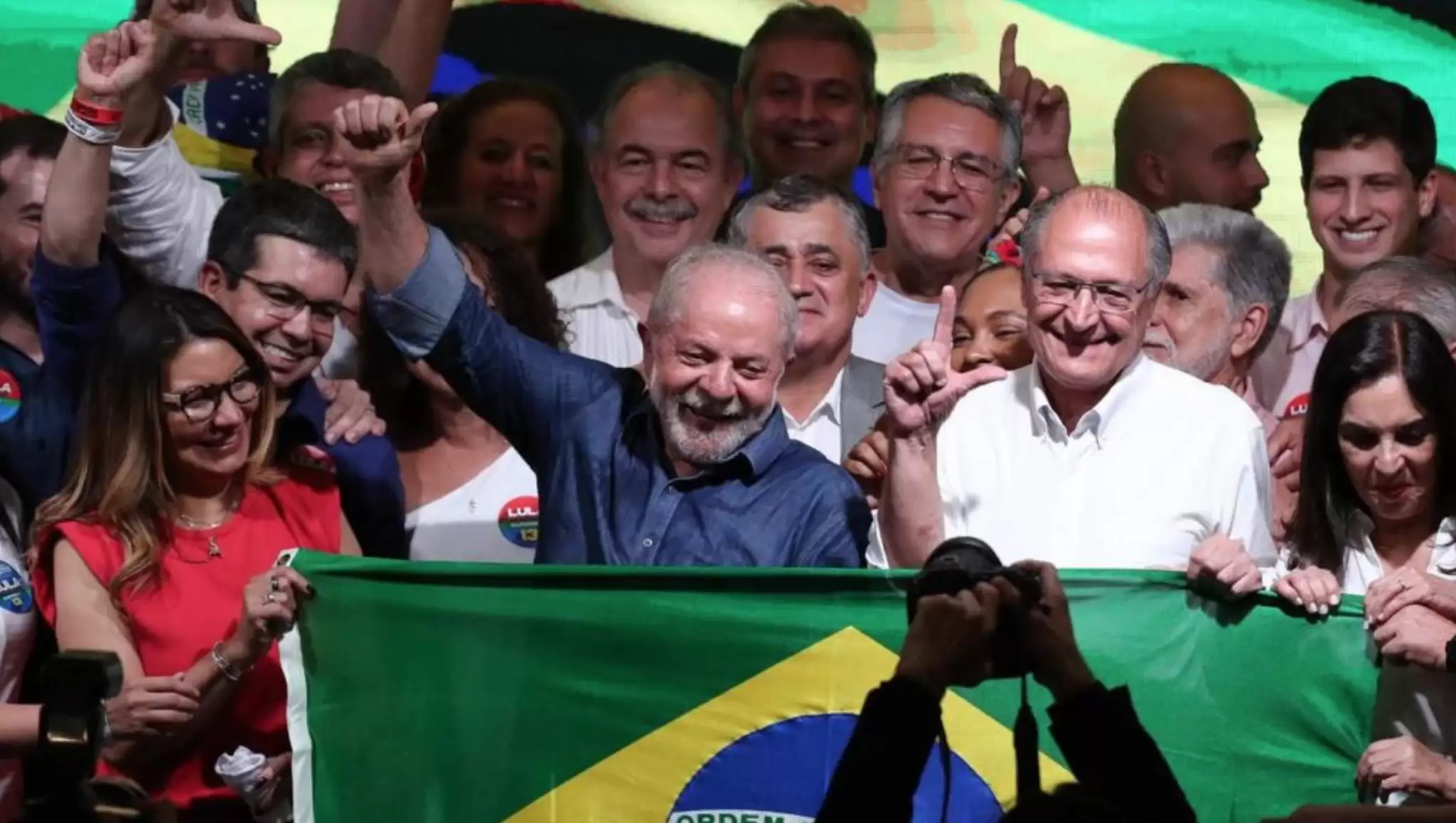Luiz Inácio Lula da Silva will be president for a third term in Brazil. In the second round of the most polarized elections since Brazil’s return to democracy, Lula won with 50.90% of the votes against 49.10% obtained by Bolsonaro. His victory was confirmed by the Superior Electoral Court (TSE) at 7:57 p.m. Brazilian time and recognized by the United States and several countries. However, his victory represents much more than the political resurrection of Lula and the Workers’ Party (PT). Despite several threats and attempts to hinder the electoral process by Jair Bolsonaro, the triumph of the largest broad front since the military dictatorship is clearly the victory of democracy over an authoritarian regression attempt.
The electoral campaign was not even-handed and was marked by the circulation of fake news, high levels of disinformation, political violence, and direct threats to democratic continuity. The broad pro-democracy front led by Lula confronted the Brazilian State machine placed at the service of the current president to buy votes and loyalties. Through the so-called “secret budget”, considering the 2023 budget, the Executive will have distributed 80 billion reais beyond what is allowed by the Constitution in exchange for political support.
In this context, political polarization was marked by episodes of violence. One of the most notorious was the shooting and throwing of grenades at members of the Federal Police by Roberto Jefferson, an ally of Bolsonaro who was in house arrest and was being preventively detained for failing to comply with precautionary measures for disseminating fake news and insulting members of the Superior Federal Court (STF). Another relevant episode was the threat and armed persecution by Bolsonaro’s ally, Carla Zambelli, of a Lula supporter in São Paulo and the inadmissible denunciation of alleged communication favoring Lula’s campaign in the country’s radio stations by the Minister of Communications Fabio Faria.
The most serious event, however, was the attempt to prevent or delay voting by means of illegal roadblocks during the run-off. The measures were applied by the Federal Highway Police (PRF), whose director was recommended by Flávio Bolsonaro, the president’s son, and targeted especially the Northeast region, where most of Lula’s supporters are concentrated. As reported by several media, the decision on this illegal operation was taken in the presidential palace itself. The more than 560 controls carried out throughout the country were denounced by international observers and organizations such as Transparency International and were interrupted only after the intimation of the Minister of the STF and president of the Superior Electoral Court (TSE), Alexandre de Moraes.
Despite attempts to hinder the proper conduct of the elections, the results gave the victory to Lula, a trade unionist and historic leader of the Brazilian left who was prevented from participating in the 2018 elections for having been convicted without evidence in the framework of Operation Car Wash.
For his part, Jair Bolsonaro, the current president and radical right-wing candidate, is the first president not to be reelected since the reelection’s constitutional amendment was approved in 1997. Unprecedentedly, one out of five Brazilians eligible to vote abstained, a significant but lower figure compared to the first round. Blank and spoiled votes together accounted for 4.59% of the total.
Brazil is back
In his first official speech, using a conciliatory tone, Lula was thankful for all sectors that supported him and the media. He said that he will govern in favor of the 215 million Brazilians since there are not two countries, but only one nation. The historic leader of the PT also recognized the need to pacify and rebuild the country, recovering dialogue and social coexistence with all actors. In addition, Lula assumed the need to govern respecting the autonomy of the institutions and rebuilding the harmonious coexistence among the three powers.
The priorities announced by the president-elect are to put an end to hunger, which today affects 33 million Brazilians according to the Penssan Network, to reduce poverty and inequalities, and to resume social policies. Lula also emphasized that Brazil is back on its feet and that from now on, it is necessary to regain credibility, predictability, and stability to regain international confidence and attract foreign investment.
Other goals of the future government are to strengthen industrialization and for the country to regain international prominence, promoting various reforms and South-South and North-South cooperation projects. Unlike the foreign policy of the Bolsonaro government, which made Brazil a regional and global pariah, Lula announced the country’s return to the global fight against climate change, inequalities, and fairer trade. In relation to the Amazon, he made a commitment to put an end to deforestation, which reached record levels during the current government.
Apart from the announcements and good intentions, the challenges that the Lula-Alckmin government will have to face as of January 2023 will be enormous and will require multiple efforts and concessions from everyone. The geopolitical disputes and the complex economic context in which his victory is taking place also foresee many difficulties in achieving his goals. However, the triumph of democracy and the possibility of rebuilding a project of peaceful coexistence and social justice for Brazil are in themselves good news.
*Translated from Spanish by Janaína Ruviaro da Silva











